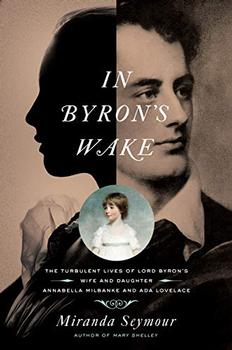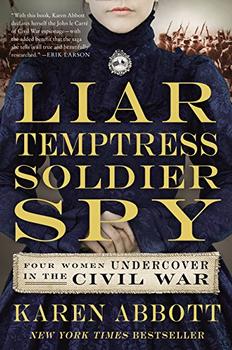Summary | Excerpt | Reviews | Beyond the book | Read-Alikes | Genres & Themes | Author Bio

The Extraordinary Life of Mrs. Adams
by Louisa ThomasLouisa Catherine Johnson Adams qualified as the only foreign-born First Lady of the United States until Melania Trump. Louisa's husband, the sixth president, John Quincy Adams, served for one term from 1825 to 1829. Louisa was born in London, but lived in Nantes in France, Berlin, St. Petersburg, Washington D.C. and Massachusetts during her long and eventful life.
Subtitled 'The extraordinary life of Mrs. Adams," this biography meets the expectations it sets. Louisa was born in 1775 to an American father and a British mother and spent much of her childhood in France before the family settled back in London. There she met John Quincy Adams, son of the second president John Adams, and it is with this meeting, in November 1795, that Thomas begins her detailed biography of Louisa's life and marriage. Louisa was 22 and John Quincy 28. They were married for over 50 years, and traveled the world - together and separately. They would parent and bury children together, lead society and withdraw from it. Their popularity rose and fell and they responded separately and together to the crises of their political and personal lives.
The major strength of this biography is the way it presents Louisa's complex and at times conflicted character. Louisa has her insecurities. The dowry her father promised to John Quincy on their engagement never materializes and Louisa suspects John Quincy must feel he has made a bad bargain in choosing her. She lacks confidence in her intellect, particularly in her skill as a writer, and suffers physically through a series of miscarriages and other infirmities.
At times Louisa views herself as a liability to her serious and often cold husband. She struggles to find her political role at a time when women were not acknowledged as being involved in politics even though as the wife of a foreign diplomat and a presidential candidate, Louisa's social skills and maneuvering were crucial to her husband's career. Particularly in the presidential campaign of 1824, her role was pivotal to Adams' success. The picture that emerges is of a conservative woman, brought up to believe the conventional wisdom of the time — that her place is in the home. Yet Louisa finds example upon example (not least in her own mother-in-law, Abigail Adams) of women playing a vital role in the world. Throughout her life she struggles to find validation both from her husband and within herself.
Thomas' use of Louisa's own writing and correspondence is admirable and consistent. She gives us Louisa's foibles and weakness as well as her strengths. She is not as forward thinking as her husband on the issue of slavery, for example, but she is an admirable mother and daughter-in-law. At times of crisis, Louisa comes into her own.
Thomas always keeps Louisa's concerns at the forefront and brushes over some of the political machinations of the day, such as the controversy surrounding Adams' defeat of Andrew Jackson in 1824, when Jackson won the popular vote and yet lost the Presidency. A small quibble: The biography describes several portraits of Louisa and it would have been beneficial to include these portraits from different points of her life.
Overall, Louisa is a crisply written, accessible biography that feels authentic to the lives of women at the time and paints a vivid and engrossing portrait of the sixth First Lady of the United States.
![]() This review was originally published in The BookBrowse Review in May 2016, and has been updated for the
April 2017 edition.
Click here to go to this issue.
This review was originally published in The BookBrowse Review in May 2016, and has been updated for the
April 2017 edition.
Click here to go to this issue.

If you liked Louisa, try these:

by Miranda Seymour
Published 2020
A masterful portrait of two remarkable women, revealing how two turbulent lives were always haunted by the dangerously enchanting, quicksilver spirit of that extraordinary father whom Ada never knew: Lord Byron.

by Abbott Kahler
Published 2015
Karen Abbott tells the stories of four courageous women - a socialite, a farmgirl, an abolitionist, and a widow - who were spies during the Civil War.
Your guide toexceptional books
BookBrowse seeks out and recommends the best in contemporary fiction and nonfiction—books that not only engage and entertain but also deepen our understanding of ourselves and the world around us.